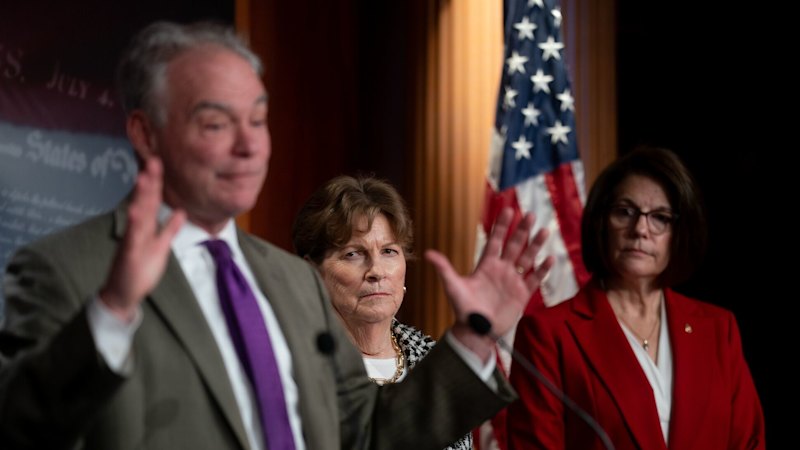
The longest federal government shutdown in US history, which has lasted for over 40 days, is set to come to an end as a group of centrist Democrats in the Senate have agreed to support a funding bill. This bipartisan move aims to restore funding and reinstate thousands of federal workers who were laid off during the shutdown. The decision comes after intense negotiations and growing pressures from the consequences of the protracted closure.
In a late-night session on October 15, 2023, enough Democratic senators broke from party lines to back the compromise plan, even as they relinquished demands for immediate extensions of critical healthcare subsidies that are facing expiration. During a press conference following the session, Senator Angus King of Maine explained the urgency of the situation, stating, “This is a true crisis for those individuals,” referring to the millions affected by the shutdown.
The agreement allows for a procedural vote in the Senate, expected to take place imminently, with a substantive vote likely occurring soon after in the House of Representatives. Although the House has been in recess since September, it can be reconvened within approximately 48 hours if necessary.
Legislative Compromise Amidst Crisis
The breakthrough in negotiations marks a significant moment, as it surpasses the previous record of 35 days set during the winter of 2018-19 under the administration of former President Donald Trump. The proposed bill would provide funding only until January 31, 2024, but it includes provisions that would bring a Democrat-drafted healthcare bill to the Senate floor by mid-December. King noted that this was a “major step.”
Despite the momentum, the likelihood of passing the healthcare bill remains uncertain, particularly given the Republican control of both Congress and the White House. President Trump has previously labeled the Affordable Care Act, commonly known as “Obamacare,” as “terrible,” but has shown openness to discussions on healthcare in the context of ending the shutdown.
Democratic leaders, including Senator Chuck Schumer and House leader Hakeem Jeffries, have expressed their opposition to the compromise plan. Schumer stated in a video message, “For months and months, Democrats have been fighting to get the Senate to address the healthcare crisis; this bill does nothing to ensure that that crisis is addressed.” He emphasized his intention to vote against the proposal and to continue advocating for a more comprehensive solution.
Impact of the Shutdown on Daily Life
The ramifications of the shutdown have been severe, affecting numerous sectors and services. Air traffic controllers, categorized as essential personnel, have been forced to work without pay, leading to significant flight cancellations. Polls indicate that the public largely blames Trump and the Republicans for the impasse, despite claims from Republican leaders that they have attempted to reopen the government multiple times.
Trump, returning to the White House from a brief appearance at a football match, remarked, “It looks like we’re getting very close to the shutdown ending.” As the situation develops, the focus remains on the legislative process ahead, and whether the compromise can lead to a sustainable resolution that addresses the pressing needs of federal employees and the broader public.
The ongoing negotiations and potential end to the shutdown highlight the complexities of governance in the United States, where bipartisan support is often crucial for moving forward in times of crisis.







